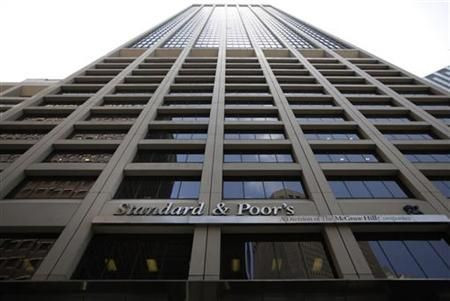McGraw-Hill to Split Into Two Companies

(Reuters) - McGraw-Hill Cos Inc. plans to split into two public companies, with one holding its Standard & Poor's ratings and index businesses and the other holding its textbook publishing units.
The move, announced Monday, is a major step toward the breakup and reorganization of the mini-conglomerate that was called for by activist investors last month in a meeting with McGraw-Hill directors.
The investors -- Jana Partners LLC, a hedge fund, and the Ontario Teacher's Pension Fund -- argued that breaking up the company would increase its value to shareholders.
A Jana spokesman did not immediately respond to a request for comment.
The company's shares were up 2.6 percent to $39.74 in premarket trade.
Terry McGraw, chairman and chief executive of the company and a great-grandson of the founder, will lead McGraw-Hill Markets, which will hold the Standard & Poor's credit rating business, S&P's market index business and S&P Capital IQ, which provides data and analytical tools on companies and markets.
The company said it has started a search for a new CEO for McGraw-Hill Education, which will contain the textbook publishing and education units. The current head of those businesses is Robert Bahash, 66, a long-time chief financial officer of the corporation who stepped into his current post last year after the top education executive left.
The break-up, which will be structured as a tax-free spinoff of the education business to McGraw-Hill shareholders, is expected to be completed by the end of 2012, the company said in a statement.
The markets businesses will have about $4 billion of revenue in 2011, and the education businesses will have about $2.4 billion in revenue, it said.
McGraw-Hill said it will make significantly cut from $1 billion of current corporate expenses and administrative and technology costs.
Evercore and Goldman Sachs are advising on the spinoff.
The company said it would speed up share repurchases to a total of $1 billion in 2011. It said it has bought back $541 million of stock so far this year.
© Copyright Thomson Reuters 2024. All rights reserved.





















